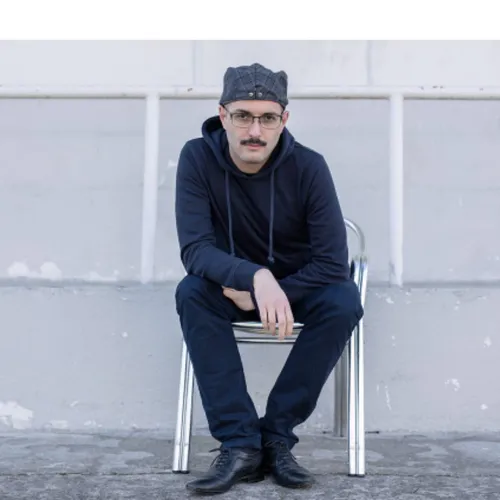
Born in Toulouse in 1989, Benjamin Attahir began by studying the violin then, very early on, became passionate about composition.
His masters include Édith Canat de Chizy, Marc-André Dalbavie, Gérard Pesson, as well as Pierre Boulez.
Winner of numerous competitions and distinctions such as the Ernst Von Siemens Music Prize, the USA IHC of Bloomington, the UNESCO International Tribune of Composers, several prizes from the SACEM and the SACD as well as the Academy of Fine Arts , he is nominated in 2019, 2021 and 2023 for the Victoires de la Musique Classique.
His works are performed by prestigious international ensembles and orchestras, just as he collaborates assiduously with the greatest performers.
He has been composer in residence at the Lille National Orchestra, the Gulbenkian Orchestra in Lisbon as well as numerous Festivals (Aix en Provence, Gstaad, Les Arcs, Messiaen, Lucerne Festival... )
Resident at the Villa Medici (16/17), he discovered the work of the author and playwright Lancelot Hamelin with whom he has since weaved an uninterrupted dialogue.
Author of two operas, the premieres of which he directed in 2012 and 2015, the stage is the backbone of his musical writing, which, like its origins, draws its inspiration halfway between East and West. In 2019, he conducted l’Orchestre de La Monnaie de Bruxelles for his third lyrical work, Le Silence des Ombres on a libretto by Maurice Maeterlinck.
His works are published by Durand Salabert Eschig.
Layal means “Nights” in Arabic and takes us to a dark and destabilizing universe. As Benjamin Attahir explains, this is more of a sinfonia concertante than a concerto strictly speaking. The soloist “is part of the action and he can lead as much as he can follow, he can give the impetus or comment on what is happening around”. In this sense, the piece requires an effort from each section of the orchestra, putting them forward successively.
This piece is an order from the Daniel Barenboim Foundation;
World premiere, May 2, 2020 in Berlin at the Staatsoper Unter den Linden by the Staatskapelle Berlin, Renaud Capuçon (violin), Daniel Barenboim (dir.).
When I heard about the Illuminations’ project about The Garden of Africa (Le Jardin d’Afrique) by Rachid Koraïchi, I immersed myself in reading the libretto and felt a call. Or rather, the urgency to compose.
Music is a borderless language with a universal reach, able to convey the pain that concerns us all and that cries out into the void.
After a first version of the work for three cellos and a female voice - the triangle and square that make up the number seven in sacred architecture - my rewriting in chamber opera format, for twelve musicians, is an unfolded and staged Jardin d'Afrique, to show and hear the strength of a powerful commitment to life, and to make this place of connection resonate.
Three groups of instruments (three bowed strings, three blowing instruments and three resonant instruments) will respond to the three voices, recreating the sacred architecture of the site in the sound space.
"One day, a man, of these countless horrors, became the gravedigger-artisan.
He said no to indifference, the kind that alters olive trees at war, right down to the winter oils. The one that oozes - the earth - reluctantly for rock-hard fruit".
Extract from | Le Jardin d'Afrique, lieu-dit pour un non-dit. Editions Al Manar
Texte traduit du français